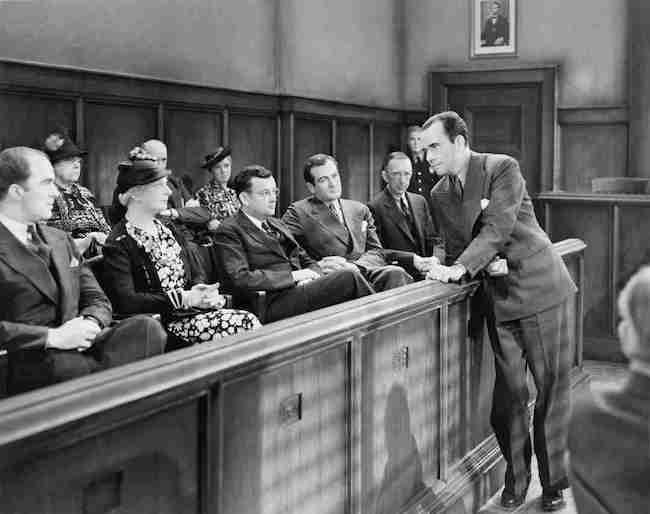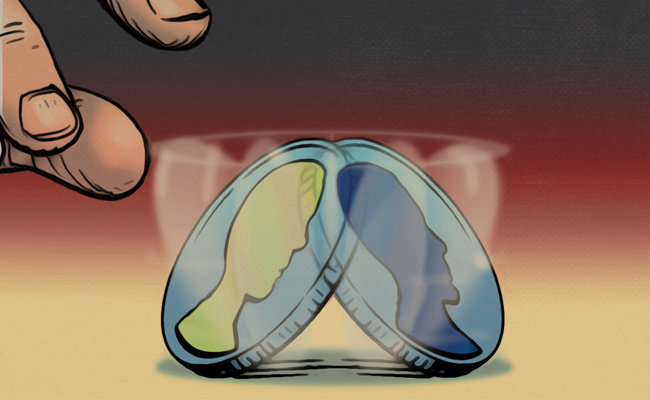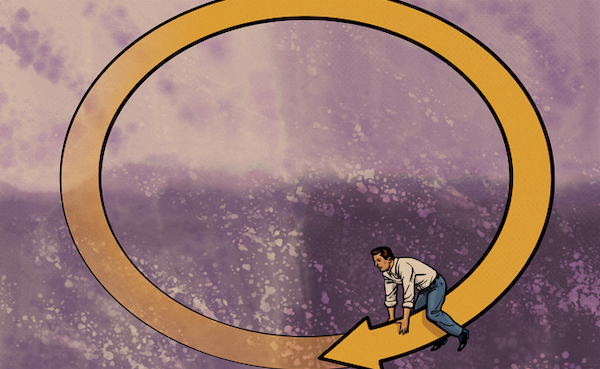
You walk down your driveway to your mailbox.
You open it up and start sorting through your mail.
Bill.
Weird fake handwritten letter from a window replacement company.
Garnet Hill catalog.
Ah, crap.
A jury summons.
One of the duties of being a citizen in the United States is serving on juries when summoned. Yes, jury duty is annoying, inconvenient, and often incredibly boring, but it’s a vital part of our justice system.
I’ve had the opportunity to do jury duty here in Oklahoma. I never got selected to work a trial, so it was pretty dull and uneventful.
Every state has different protocols on how jury duty works, but they all pretty much follow the same general guidelines. To give American readers the lowdown on how to fulfill your civic duty, I’ll go over some things to know the next time you’re called to serve.
Find Out if You’re Exempt or Excused From Jury Duty
If you’re a U.S. citizen, 18 years or older, not a felon, and have resided in your judicial jurisdiction for at least a year, you’re eligible for jury duty and are required to show up to court on your appointed date if your name is randomly drawn to serve.
However, federal and state courts have exemptions or allow excuses from jury duty. Each court is different, so make sure to look it up online.
If you’re exempt or excused from jury duty, there’s a form you can fill out on your summons that you can return. Do that immediately so you don’t have to show up to the courthouse on your appointed jury duty date.
The ol’ Liz Lemon technique for getting out of jury duty probably won’t work.
Show Up at the Courthouse on the Appointed Date
If you’re not exempt or excused from jury duty, arrive at the courthouse at the appointed date and time. This is important. Failure to report to jury duty will mean you’re in contempt of court. You’re breaking the law. You can be fined or given community service. Don’t miss jury duty.
Plan to Be Out of Pocket for a Week
Most jury duty terms are a week. If you’re assigned to a trial, your trial could be wrapped up in a day or two, which means you’ll go back to the jury pool to await being assigned to another trial.
So make plans to be out of pocket for a week’s time. Let your employer know about your jury duty. By law, employers can’t fire you for missing work due to jury duty. They don’t have to pay you, but they can’t give you the boot.
You’ll get paid for your service on jury duty, but it’s just like $20 to $50 a day (depending on where you live). Just enough to cover parking and lunch at Arby’s.
Some trials can go longer than a week, but that’s rare. If you get assigned to a trial that goes longer, bless your civic heart.
Dress Professionally
In both federal and state courts, the dress code is business casual. Don’t wear shorts, t-shirts, or flip-flops.
I wore a sport coat and slacks during my jury duty. Most men were wearing polo shirts and khakis. One older gentleman was rocking a full double-breasted suit.
Bring Something to Read/Do
In most states, when you arrive at the courthouse, you’ll be ushered to the jury pool area. It’s just a big waiting room that probably has the same decor as it did in 1986. There you will sit until you’re randomly assigned a trial.
You might be selected to go to a trial first thing in the morning. Or you could be like me and not get called up until day three of your jury duty.
So I had to wile away the time for two full days.
Thankfully, I brought my laptop and was able to get some work done while sitting in the jury pool area. I also brought some books to read. It was actually kind of nice to get some uninterrupted work and reading done for an entire two days.
When you get assigned to a trial, it doesn’t necessarily mean you’ll serve as a juror in that trial. Once you get into the courtroom, you’ll go through a process called voir dire, or “vore dyer,” as we say here in Oklahoma. It’s jury selection. This is when the attorneys from both sides of the dispute will ask you questions to see if they want you on the jury panel. The goal is to make sure both sides get a fair and impartial jury.
You may get excused from the trial after jury selection, and you’ll return to the jury pool waiting area to be assigned to another trial. This happened to me. I got called to a criminal trial on my third day but got the boot during jury selection. I think it may have had to do with my legal background. Who knows. Anyways, I had to go back to the jury pool waiting area and returned to reading my book and working on my laptop. At the end of day four, they told me I didn’t have to come back the next day since they were done starting new trials for the week. So my jury duty lasted just four days.
If you get called to a trial on the first day of jury duty, there’s a chance you’ll wrap your trial up in a day or two. In that case, you’ll return to the jury pool for the rest of your service time. You’ll be glad you brought something to read/do.
Don’t Discuss the Case With Anybody and Avoid News About the Case
If you get selected for a trial and it isn’t over by the end of the day, you’ll be instructed by the judge not to discuss the case with anybody: your family, other jurors, lawyers, or the bailiff. Nobody. You’ll also be instructed to avoid any media discussing the case. Your job as a juror is to decide the case based only on the evidence presented in the courtroom, not by analysis in the news. In some cases, the judge may sequester you to a hotel room to ensure you aren’t exposed to outside media during the trial.
Listen Carefully to Jury Instructions
After closing arguments, the judge will give the jury “jury instructions.” Pay close attention during this time because it will guide your deliberations with the other jurors.
During jury instructions, the judge informs the jury of the applicable laws for their deliberations and that jurors are required to adhere to these laws when deliberating, whether they agree with the laws or not. (Some juries ignore this instruction and engage in “jury nullification.”)
The judge will then explain that the jurors are responsible for determining the facts of the case. Your job is to determine which side made the most convincing arguments about what happened during the dispute or crime. Sometimes the judge will lay out which facts are in dispute and which ones aren’t relevant to the case.
The judge will then explain the standard of proof the jury should use when determining liability (in a civil case) or guilt (in a criminal case). In a civil case, the standard of proof is “a preponderance of the evidence,” which means it’s more likely than not that the defendant is responsible. Basically, if the evidence presented by a plaintiff shows that there’s about a 51% chance that the defendant is liable for the damage, then you can hold the defendant liable. In a civil case, you may also be given instructions on assessing damages.
In a criminal case, the standard of proof is “beyond a reasonable doubt,” which means the state has presented evidence that leaves you with an abiding conviction that the charge is true. You need to be 98% to 99% sure that the defendant is guilty in a criminal case. The standard is so high in a criminal case because the punishments are potentially severe: imprisonment or even death. As Ben Franklin put it: “Better that a 100 guilty men go free than one innocent person should suffer.”
Be Professional During Jury Deliberations
After jury instructions, you’ll be escorted to the jurors’ room for deliberations. Your first order of business will be to elect a jury foreman. Their job is to guide the discussions, take votes from the other jurors, and deliver the verdict.
During deliberations, be professional. Treat your fellow jurors respectfully, even if you disagree with their opinions on the case.
If you have questions for the judge about the applicable law, the foreman can send a note to the judge. The judge may answer with a note or call the jury back to the courtroom to clear things up.
In most states, civil and criminal cases require a unanimous verdict from the jury. Everyone has to agree. (In some states, civil liability can be determined by a majority of the jurors).
After the verdict is read to the court, the court is dismissed. If it’s Tuesday during your week of jury duty, you’ll go back to the jury pool and wait to be assigned to another trial. If it’s late in the week, you might just be sent home.
If there isn’t a unanimous decision, that’s a hung jury. The judge may ask that you keep deliberating or may declare a mistrial. If it’s a mistrial, the case can be tried again with another jury.
Few people are excited about jury duty, but when it’s your turn to serve, give it your best. You’d hope for the same from your fellow citizens if you ever found yourself in the defendant’s seat.







